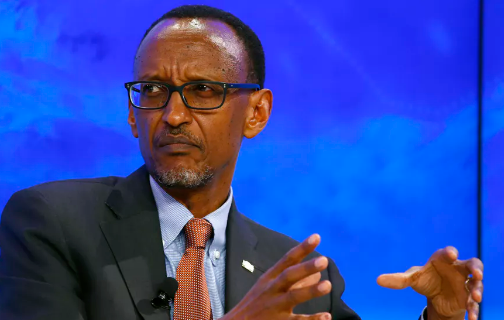
Rwanda president to supporters: ‘Think differently about next election’

Rwanda’s President Paul Kagame, who has been in office since 2000, wants his supporters to “keep thinking differently” about his candidacy for the next presidential election.
Kagame, who is also the chairman of the ruling party Rwandan Patriotic Front (RPF), was re-elected in 2017 by winning 98.79 percent of the vote.
“My view was not to continue. Honestly, it’s an open secret whether it was in my party or who I interacted with, and I told them my view of what should happen,” Kagame said at a press conference, referring to the 2017 election.
“Their view was completely on one side and my view was on the other side. We reconciled that and I agreed to listen to them,” he said, adding that he had asked them to “keep thinking differently” and not to come up with the same argument “next time.”
The press conference is part of events that mark the 25th anniversary of Rwanda’s liberation. Kagame led the liberation struggle of Rwanda in 1990s that ends the 1994’s Rwandan genocide against the Tutsi, as the commander of the forces of RPF.
“If the story had been that of fighting to be president, I wouldn’t have participated. My story was about fighting to have a country that I didn’t have and to contribute with others to making the change that didn’t happen in our country,” Kagame recalled his experiences of the liberation struggle.
The presidency is not only decided by his personal choice but the system that people decide, he said.
He also urged people who want to be the president to “be prepared” next time.
The central African country marks Liberation Day, known as Kwibohora locally, every year on July 4, commemorating the day then Rwandan Patriotic Army, the armed wing of the Rwandan Patriotic Front during the liberation struggle, ended the Rwandan genocide. July 4, 1994, was also the day when Kigali fell into the hands of the Rwandan Patriotic Army.
It has been recovering from that genocide that killed over 1 million people and has now been considered as a model of development for many countries in Africa.






